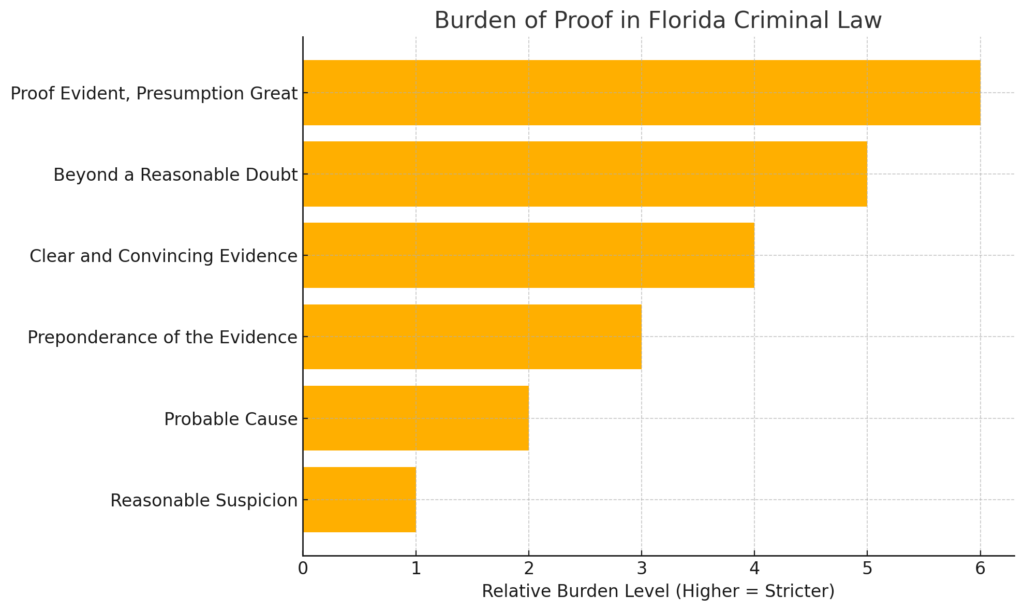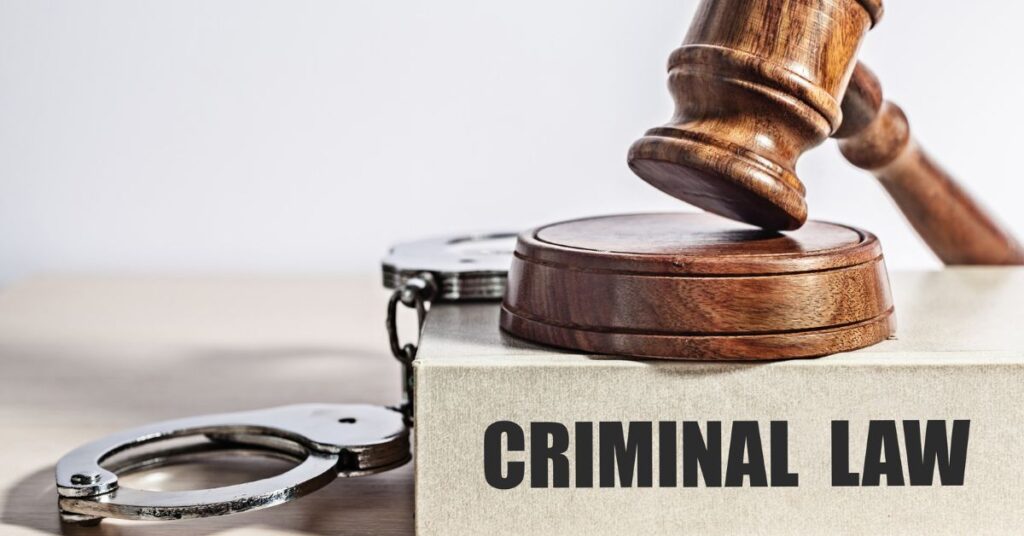Standards of Proof and Evidentiary Burdens in Florida Criminal Cases
Understanding the different evidentiary burdens of proof is critical in any criminal case in Fort Lauderdale or across South Florida. These legal thresholds affect arrests, hearings, trials, and even sentencing. Here’s how they break down:
🔒 Beyond a Reasonable Doubt
This is the highest standard of proof in the Florida criminal justice system. It applies at trial when the State prosecutes a defendant. Under Florida’s Standard Jury Instructions:
A possible doubt or suspicion is not enough to convict
The burden is not met if the jury vacillates or is uncertain
The State must prove guilt beyond every reasonable doubt
Doubt may arise from the evidence—or from its absence
📍 This standard applies during trial and is crucial to any conviction in Broward County criminal court.
📍 This standard applies during trial and is crucial to any conviction in Broward County criminal court.
Judges in Fort Lauderdale and elsewhere in Florida use this standard when the stakes are serious but do not rise to the level of criminal conviction.
🧠 Clear and Convincing Evidence
This standard falls between “beyond a reasonable doubt” and “preponderance of the evidence.”
It typically arises in:
Mental health-based appeals
Restraining order or injunction hearings, where the moving party must show the allegations are highly and substantially more likely true than not
Probation violation hearings— The State must show the violation likely occurred
Affirmative defenses— When a defendant raises a defense such as duress, entrapment, or necessity, they must prove it by a preponderanceThe burden is not met if the jury vacillates or is uncertain
📍 This standard applies during trial and is crucial to any conviction in Broward County criminal court.
Judges in Fort Lauderdale and elsewhere in Florida use this standard when the stakes are serious but do not rise to the level of criminal conviction.
⚖️ Preponderance of the Evidence
This is the lowest standard of proof that still requires persuasion. It means more likely than not (often explained as 51%).
It’s used in:
Probation violation hearings— The State must show the violation likely occurred
Affirmative defenses— When a defendant raises a defense such as duress, entrapment, or necessity, they must prove it by a preponderanceThe burden is not met if the jury vacillates or is uncertain
📌 This standard often decides cases during pretrial litigation or sentencing arguments in South Florida courts.
🚨 Probable Cause
This standard applies during early law enforcement and judicial decision-making:
Arrests without a warrant
Search warrant applications
The State must show that, based on facts and circumstances, there’s more than a bare suspicion that a crime occurred. Courts conduct a fact-intensive inquiry to assess whether Fort Lauderdale police or prosecutors had a lawful basis to proceed.
👮 Reasonable Suspicion
A lower standard than probable cause, this applies when police briefly detain or stop someone:
Based on specific, articulable facts
More than a hunch or mere curiosity
Example: A Fort Lauderdale officer stopping a car for erratic driving may only need reasonable suspicion — not probable cause — for a DUI investigation.
🧾 Proof Evident, Presumption Great (Arthur Hearings)
This rare and strict standard applies at an Arthur Hearing, used when a person is charged with a capital or life felony and seeks bond.
- The prosecution must prove the defendant’s guilt is obvious and indisputable
- It’s more demanding than “beyond a reasonable doubt”
- If met, the judge proceeds to a second phase to decide whether a discretionary bond is appropriate
Arthur Hearings are pivotal in Broward County murder and violent felony cases.

Frequently Asked Questions: Standards of Proof
What is the highest burden of proof in Florida criminal law?
The highest standard is “proof evident, presumption great,” used in rare Arthur Hearings. At trial, the highest is “beyond a reasonable doubt.”
When is "clear and convincing evidence" used?
It’s typically used in mental health appeals and injunction hearings involving restraining orders.
How much is a "preponderance of the evidence"?
It means just over 50% — more likely than not.
Do police need probable cause to stop someone in Fort Lauderdale?
Not always. For a brief stop, officers only need reasonable suspicion based on articulable facts.
What is the purpose of an Arthur Hearing?
To determine whether a person charged with a capital or life felony can be granted discretionary bond.


